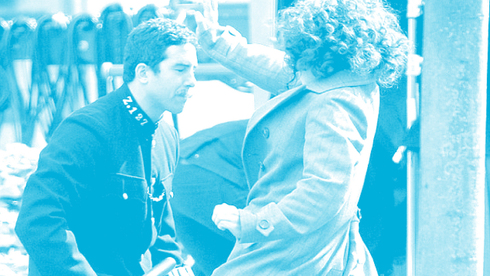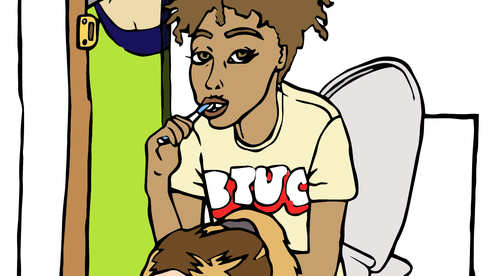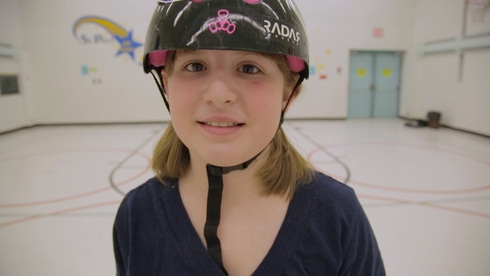Red Lighter Films X Reel Good Film Club Two self-funded film initiatives discuss diversity, the lack of complex stories and subverting the film industry
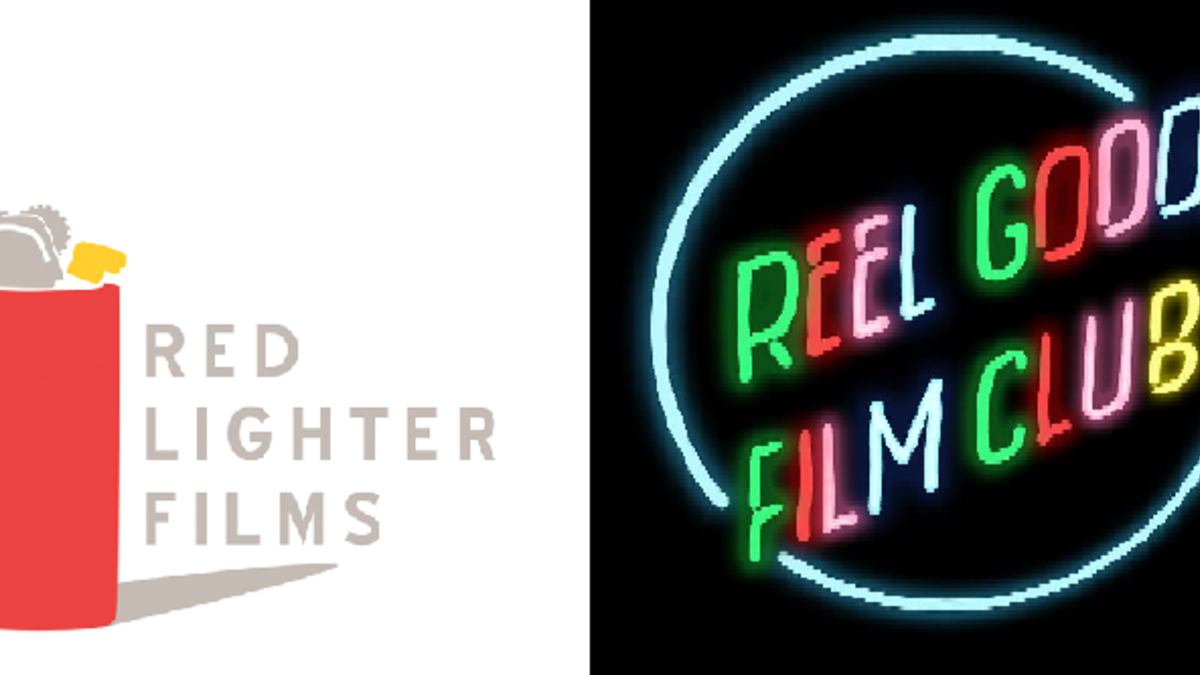
Created by L.A-based photographer Hobbes Ginsberg and actress/producer Chloe Feller, Red Lighter Films are a team of creatives proving the importance of community filmmaking in the making of complex and intersectional work by and for the people that are too often misrepresented and left out of our screens. Also fed up with the exclusivity of cinema, Reel Good Film Club was set up as a way to celebrate the work of filmmakers of colour. Its co-founder, Maria Cabrera, chats with the pair about founding a self-funded initiative, diversity within the film industry, and how to subvert institutions and mainstream cinema practises.
Maria Cabrera: I don’t know if it's the same in L.A but a lot of art institutions here are talking a lot about diversity almost as if it is a trend?
Hobbes Ginsberg: This is something I talk about a lot, especially with trans issues in the photography world. There’s a lot of people talking about it and doing the least amount of work possible to give the impression that they’re being progressive but not putting any effort to learn or be subversive on any kind of level. L.A is known for being very superficial in a way that relates to social issues, where people love to get swept up in the hype, particularly rich white people who don’t actually do or care about anything.
Chloe Feller: Yeh they’ll share an article but they’re not actually going to make the effort to be inclusive when they are hiring a team.
H: It doesn’t take a lot to make calls that are inclusive. We've put in the minimal amount of effort to do so and almost everyone who’s contacted us to get involved has been a marginalised community in some way.
M: And people always forget the internet is a tool! Most of the films that I feel I relate to I've watched online! Sometimes I think… do I even need to go to the cinema? When I go I have a contradictory feeling of wanting to be part of the space because I love film, while at the same time it isn’t always welcoming, so why am I giving them my money?
H: This really intersects with anything you want to be doing, film or not... Are we trying to assimilate and just become another faceless production company, one that will create stuff that will make us money, or, are we trying to carve out a new path to success for ourselves and for anyone that can come with us?
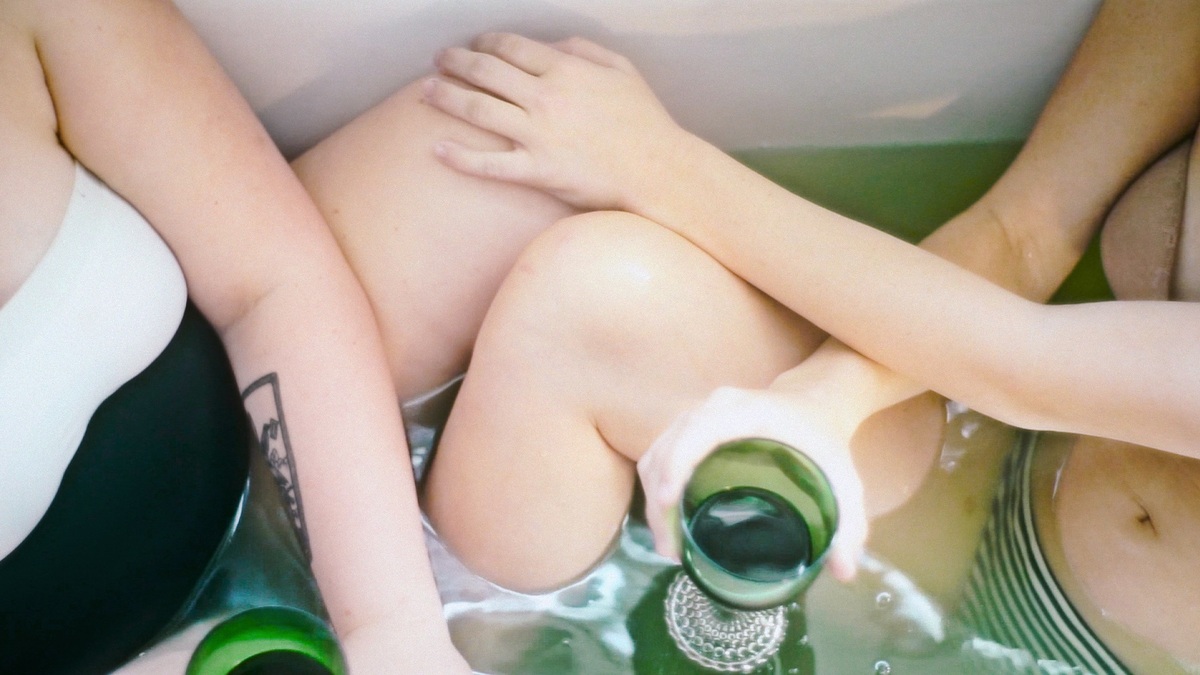
C: The same applies to acting too. Trying to succeed within the parameters is just too limiting. I just got so sick of going to auditions for things that I didn’t care about and getting hired to do things that didn’t fulfil me and made me feel bad about myself.
M: Not enough people talk about these feelings when they work in creative industries. There are so many people that have never experienced any form of mental illness but I know many who have developed mental health issues from working in creative industries that neglect them as marginalised individuals and tell them their ideas aren't worthy.
C: What I don’t understand is how things have progressed to such a stasis for such a long time? How are we not clawing our eyes after the same movie get made over and over again. Each Oscar season that’s coming is exactly the same, predominantly the same directors, the same actors and the same everything. If I see another, “gritty” boxing or wrestling movie that features Mark Wahlberg or Mickey Rourke I’m going to throw up!
M: Also why is it every time they “diversify” the Oscars, there’s always this depressing story about a person dealing with their sexuality, or something similar? Why is it always sad stories about diverse people?
C: Or it’s a race film and half of the film is about everyone dying and not in positions of power. It’s just continuing marginalisation and it seems exploitative after a while.
H: And these aren't just the stories that are being made, those are just the only stories that are being picked out of the many being created.
M: What do you think of these terms that apply to the work we’re doing, such as “diversity” and “communities”? Do you think they continue marginalisation? They can be very patronising and often everyone is put into one box in which they can be picked from and put into a film or into a school programme and then the authorities can say they “diversified it”.
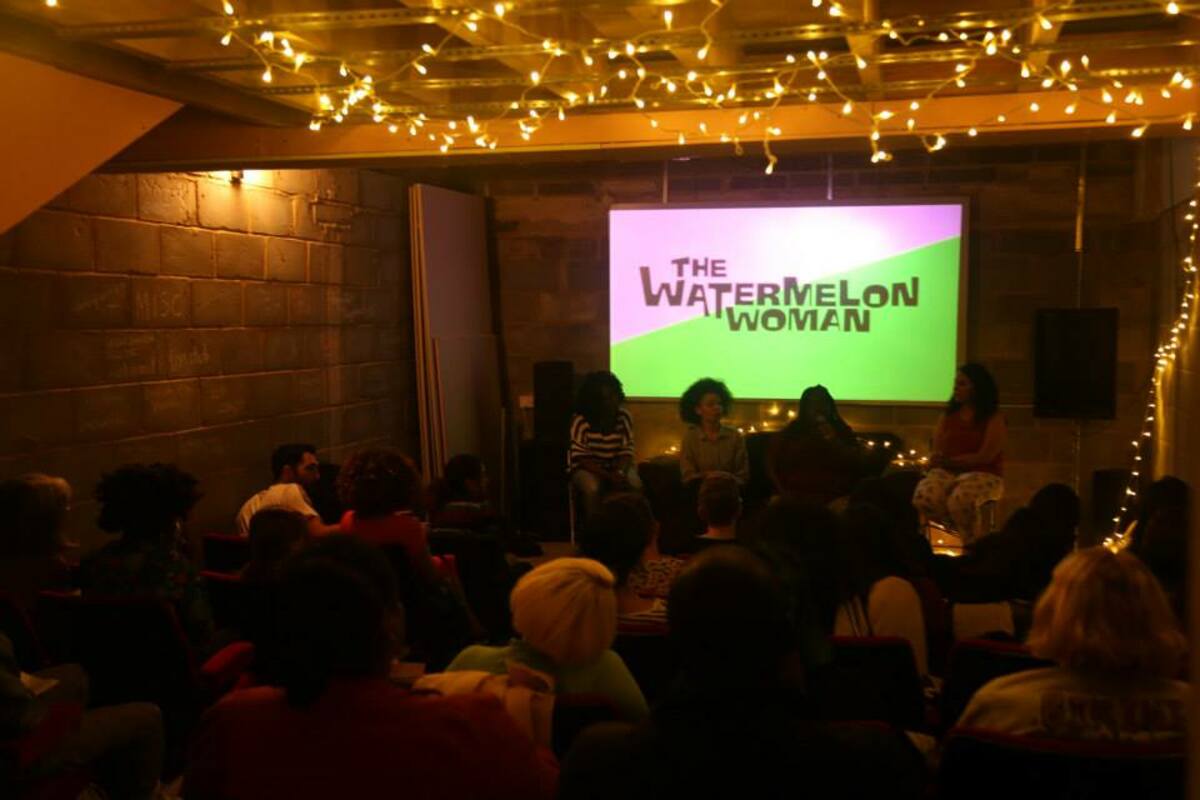
C: Only the minimum is being done. “We’ll put one black person here who will be the best friend character, then we’ll have this white cis gay person who’s also going to be a peripheral character and is probably going to say misogynistic or racist things”. This “diversity” is not really diverse because it operates to uphold the system and it also reinforces stereotypes 90% of the time. I can’t believe there are such a few films that feature, for example, black women in lead roles where their story doesn't pivot around…
H: …hardships they face for being a black woman specifically. No one is being allowed to exist outside the archetype of their identity.
C: That is what we want to fight against with Red Lighter. It’s not just about creating a quota– “oh we got this off the list”- but we want to question whether the stories we are telling, which are diverse, are complex and can be pushed further.
H: At the risk of sounding all ‘we’re-all human-and-we’re-all-the-same’, we’re trying to tell stories that are not simply: a trans character and the whole story is about being trans. It can be a complex moment in time about a person, of course their identity is important, but they can exist as people. Also, with diversity in this industry we have to look further than the characters. Even if the the lead character is POC or is trans or even if the writer is and there’s a good base for the story, the 100 people working for the movie such as the producers, studio executives and the people that decide if the film will get distributed, could be all white.
C: The final product is a reflection of every single person involved in it and it is important and crucial to diversify your sets in every way.
M: Outside of production do you see your films living on the internet for people to watch for free? I’ve been thinking a lot about whether online archives may be a way forward and a more subversive way of changing the industry on our terms.
H: I’m really into online video content, youtube space and the new potential new media has to offer so a lot of these shorts are going to be living online and free to access, at least at the beginning. The premiere of our first film will be in a gallery in L.A with a $5 entry but on the same day it will be released online in Vice Magazine as well as on our Youtube channel. Releasing online allows us to build a community that aren’t in L.A and who aren’t necessarily filmmakers. Later on we may look into other methods of monetisation and distributing for different people who want different things and have different economic accessibility. Accessibility and spaces seems significant to what all of us are trying to do – what is the importance of having a space for what you do?
M: As a film club we address accessibility through only organising free or non-profit screenings but we also want to create a comfortable space that doesn’t have this euro-centric notion of what watching a film is through using unconventional pop-up venues. I really hate the feeling of going into a cinema and feeling like you can’t cough, laugh loudly or whisper something to your friend. I really admire the work of a programmer called Jemma Desai who runs a curational film project called I am Dora. It’s about how women feel and relate to film and each one of her screenings has an interactive aspect such as an accompanying zine or an audience discussion. I’m drawn to this type of programming because it allows the audience to have ownership and be part of the space.
H: Whether it’s a physical, virtual or metaphorical space, just having a space for something sort of demands what it’s asking for. You’re creating a space for dialogue and for subversive things to be shown and that in itself, grants the possibility for people to think about what they can make themselves.
M: Collaboration seems really important to each of our projects. How has working within a community impacted your work?
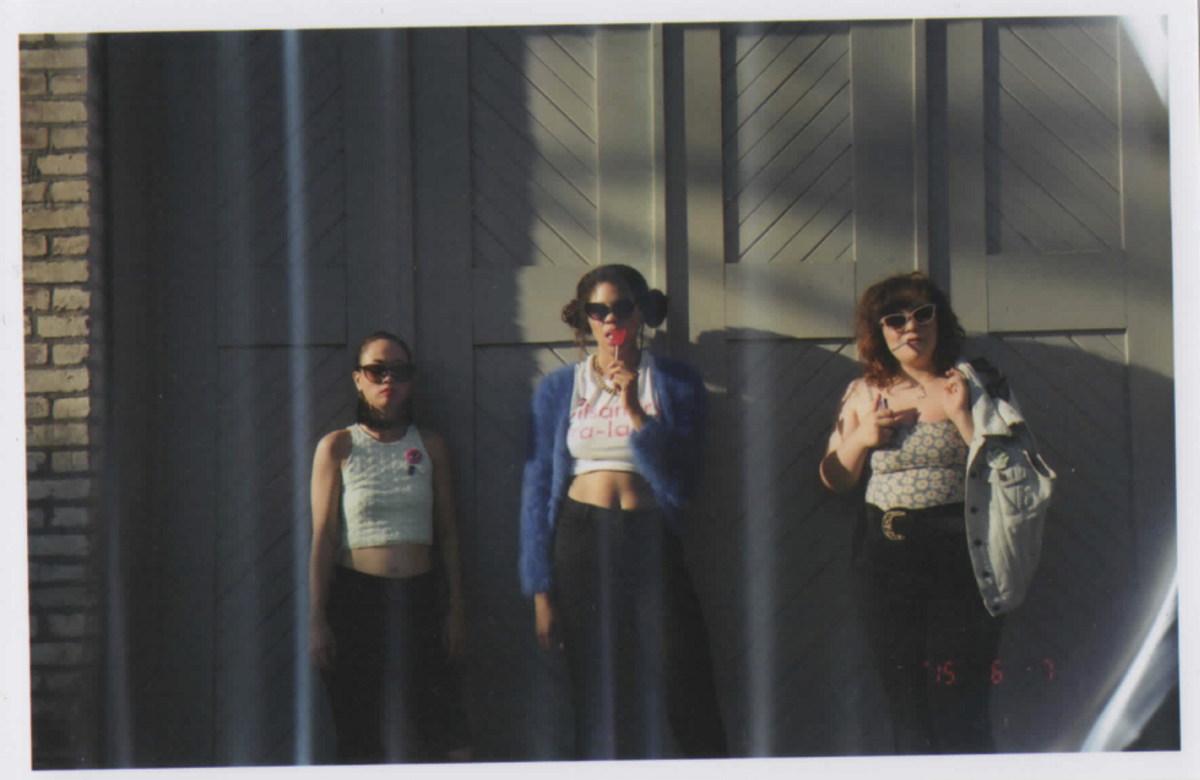
H: It is a crucial aspect of our company. Me and Chloe came up with and produced our first short, All Encompassing and Everywhere. The next one is coming out at the end of this month, Revenge of The Flower Gang, which we are distributing and helping out on, and was made by a friend of ours who actually assisted-directed our film. We are trying to create a little community of people we know that are making film and help funnel it through what Red Lighter does so we can help build an audience for everybody.
C: Also we’re just finding people who are really passionate and share the goals and ideas that we have. We’re trying to break up the idea of competition within this industry which stems a lot from it being a male-dominated industry and hyper-masculinity within that. The idea of competition is really an illusion and we both feel as a group we can get a lot of work done in a more rewarding way as collaborators. Even if people don’t end up working with Red Lighter, it’s still cool to reach out and create these dialogues.
M: Do you see yourself being able to fulfil how you want cinema and the film industry to be through doing this work?
C: Yeah and for me it has come to a point where I’m deciding between: Do I pursue school right now because it offers financial support or do I focus all my energy on this production company and growing it? I would rather be doing this and we’re both putting a lot of stake in to it but we’re also not giving ourselves the option to fail. The reality of the situation is that both me and Hobbes believe that audiences want this whether they know it or not.
M: I feel the same, especially working in a team or when meeting other independent programmers doing similar things. If there are more of us making the work we want to create there is no reason why we can’t have an impact.
H: We really feel like we’re making something that has a lot of potential and at this point it just has to work, there’s no other option besides this movie is going to come out and it’s going to do great and we’re going to push forward with this company and really make something with it. No matter what that takes, even if it’s just for the next year working full time in the day and full time in the night, that’s what it is. Things are happening and things are coming out of our generation of people who are really working to make fundamental changes instead of trying to gloss over problems. There are a lot of us working hard to dismantle oppressive regimes in many fields so we have a lot of confidence that something is going to happen with what we’re all doing.
Check out Red Lighter on Facebook for new releases. Check out Reel Good Film Club on Facebook and as @GotToBeReel on Twitter.

